Getting enough sleep is known to be enormously beneficial to our physical and mental health yet very few of us seem able to consistently achieve a full night’s rest. Anxiety, stress, physical pain or injury, hormonal shift, withdrawal of medication and indigestion are just some of the reason we can’t catch enough Zzzs. If for whatever reason you aren’t able to get the amount of shut eye that your body requires, which is generally from 7-9 quality hours a night, you know what getting up on the wrong side of the bed means.
If you count yourself in the no-sleep category, you are not alone. According to the National Sleep Foundation, 50 to 70 million American adults are affected by some type of sleep disorder.
It’s referred to as beauty sleep for a reason and if we don’t get enough of it we feel anything but. When it comes to your beauty routine, sleep is probably the closest thing there is to a fountain of youth. Skin makes new collagen when you sleep, which prevents sagging. “That’s part of the repair process, ” says Patricia Wexler, a prominent dermatologist in New York. More collagen makes the skin plumper and less likely to wrinkle. If you’re getting fewer than 6 hours, it’s likely to be affecting your appearance. Getting only 5 hours a night can lead to more wrinkles and also leaves the skin dryer, making the lines more visible according to Wexler. ( WebMD)
What lack of sleep does to the eyes isn’t a pretty picture either. Red, swollen eyes and sagging eyelids or dark circles underneath the eyes (what I call raccoon eyes) announce to the world that you are losing the sleep battle.
Even more important than having a negative impact on our looks, science has linked long term sleep deprivation with all kinds of health problems. Not getting enough sleep can weaken your immune system,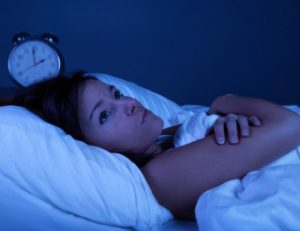 lower your sex drive, cause depression and other thinking issues and lead to weight gain. Insufficient amounts of sleep can also increase your risk of certain cancers, diabetes, stroke and even car accidents.
lower your sex drive, cause depression and other thinking issues and lead to weight gain. Insufficient amounts of sleep can also increase your risk of certain cancers, diabetes, stroke and even car accidents.
Doctors are often all too willing to prescribe a sleeping pill and there are also many over-the-counter sleep supplements which can be purchased at any pharmacy. But isn’t it better to try a all-natural alternative to the pills which contain none of the potentially harmful side effects?
Essential oils are derived from plants with medicinal properties. They’ve been used for many years and have numerous proven health benefits. Some essential oils have not only a sedative effect that promotes sleep, but they can also reduce anxiety, lower blood pressure and relieve stress, as well as other benefits. They can be applied in a variety of different ways: mixed in a cream, through a diffuser, added to a bath or mixed with a base oil and sprayed on. Since they’re highly concentrated, most shouldn’t be applied directly on the skin without being diluted first.
Here are 7 of the best essential oils that will knock you right out:
LAVENDER
Not only does it smell wonderful, lavender oil is one of the best natural sources for inducing a blissful slumber. Lavender is one of the few essential oils that can be applied directly on the skin. Adding a couple of drops to a bath is a great way to unwind after a stressful day or sprinkle a few drops on sheets and pillowcases before going to sleep at night.
CHAMOMILE
Chamomile has been used for centuries to fight off insomnia and recent studies have shown its effectiveness in relieving anxiety and stress. Chamomile is often used in tea to treat an upset stomach, clear up skin rashes and calm nerves in addition to helping with sleep.
VALERIAN
Not only does Valerian essential oil improve sleep quality, it contains many other health benefits such as: calm gastrointestinal issues, reduce heart palpitations, protect the skin, lower blood pressure, eliminate anxiety and lessen menstrual cramps.Valerian has been used as a medicinal herb since ancient times. Both Hippocrates and Galen promoted valerian as a remedy for insomnia and it has used for this as well in Ayurvedic and Chinese medicine for thousands of years.
CLARY SAGE
The long list of health benefits for Clary Sage include its properties as an antidepressant, anticonvulsant, antiseptic, astringent and sedative. Clary Sage gets its name from the Latin word “clears” which means “clear”. It was referred to as “clear eyes” during the Middle ages since it was recognized as helping to improve vision. Another use is as an aphrodisiac due to its effect on hormones of the body and increasing testosterone levels.
NEROLI
The spicy, citrusy smell of neroli is uplifting and intoxicating, at least to me. For women of a certain age, neroli has some significant health benefits that go beyond helping her get that sleep that used to come so easily. A recent study showed that inhalation of neroli oil by post-menopausal women improved their quality of life by increasing sexual desire and reducing blood pressure as well. It’s also been shown to produce a calming effect on men and women, especially when combined with chamomile and lavender oil.
YLANG-YLANG
Ylang-Ylang means “flower of flowers” and was given this name because of its gorgeous sweet scent. Historically the ylang-ylang flower has been used to cover the beds of newlywed couples on their wedding night. Not only does it help as a sleep aid, yang-ylang essential oil can also increase libido and help alleviate stress and anxiety.
VETIVER
Because vetiver essential oil is distilled from the root of the plant, it smells very rich and earthy. If you prefer earthier, grassier scents to florals, you might find this more to your liking. The scent is very psychologically grounding, calming and stabilizing. Add a couple of drops to your evening bath for deep relaxation.
CEDARWOOD
Cedars are the trees mentioned most often in the Bible, and represent protection, wisdom and abundance. Cedarwood essential oil is derived from the bark of the tree and has a strong woody and sweet aroma. Inhaling of cedarwood oil can lead to a state of tranquility and relaxation, promoting a feeling of self-acceptance and security. Its other properties are reducing blood pressure and tightening and toning the skin. It also supports healthy function of the pineal gland, which releases melatonin – the body’s natural sleepy hormones.
BERGAMOT
Bergamot is a citrus fruit whose rind is used for extracting bergamot essential oil. It has a spicy bitter-sweet scent which is often used in perfume due to its versatile and pleasant aroma. Bergamot essential oil is an effective relaxant and is known to sooth nerves and reduce anxiety, which can treat ailments associated with stress such as high blood pressure, depression and insomnia. It can also stimulate certain hormones in the body which are known to induce feelings of relaxation and sedation, like dopamine and serotonin.
These are just some of the wonderful essential oils that can transport you to The Land of Nod. If you aren’t getting the proper amount of sleep on a regular basis, it is likely that your well-being is suffering in one way or another. To learn about some other essential oils that treat conditions which may be interfering with your ability to sleep, you may want to check out my earlier post The Aromatherapy Guide: Using Scent To Improve Your Well-Being.
The method you choose to incorporate any of these oils into your night-time ritual is a matter of personal preference. You may enjoy adding a few drops to your evening bath to unwind before hitting the hay. Or you could try putting several drops into the palm of your hands, rubbing them together and then cupping over your nose while taking deep breaths to enjoy the aromatic benefits. My personal favorite method is to use a diffuser which turns my entire bedroom into a relaxing sanctuary.
Have you ever found yourself in the club of the sleep-stressed and started using essential oils for relief? If so, I’d love to hear your story:)
Until the next time,

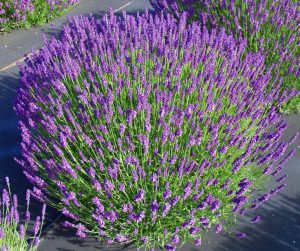
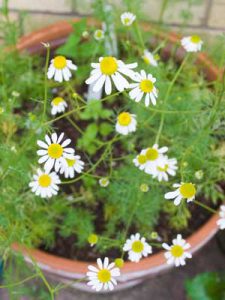
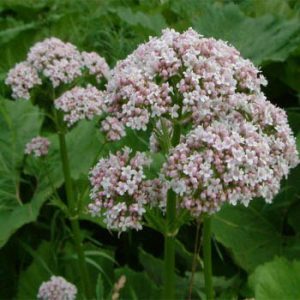
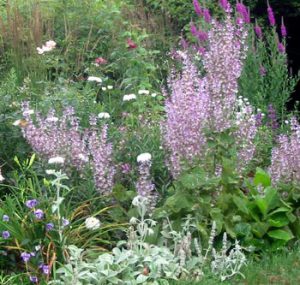
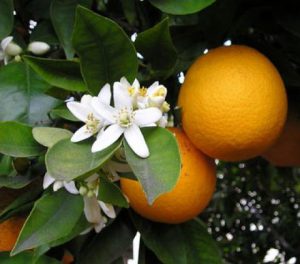
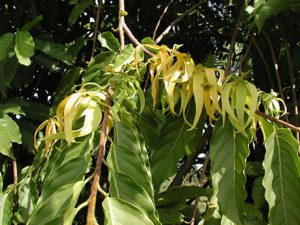
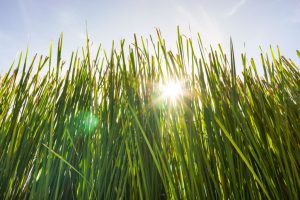
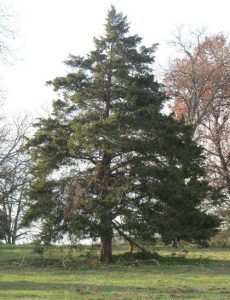
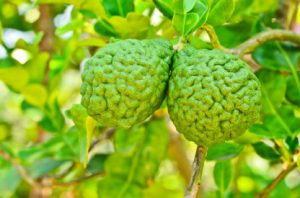

This is a lot of really good information. I didn’t realize there were so many different oils that could help someone sleep. I had heard of lavender and camomille before but these other ones came as a shock to me. I know someone who suffers from sleep apnea. Do you think any of these could possibly help him sleep better?
I’m glad you asked! Many people use essential oils to help with sleep apnea. Essential oils are effective in clearing the nasal passages to help people breathe more easily during sleep. Two other essential oils that I didn’t mention that are especially good for clearing the nasal airways are peppermint and Eucalyptus. It’s something sleep apnea sufferers might try before investing in an expensive CPAP machine.
Thanks for stopping by:)
Erica
My wife usually has trouble sleeping and she definitely likes pleasant aromas. You share some good information here. The descriptions and uses listed for each plant the oils come from are helpful. Knowing where to get the oils is also helpful. We may have to give this a try. Thanks.
Bert
Hi Bert,
If your wife is willing, it’s definitely worth a try. I know of people who don’t even care for fragrance per se who find aromatherapy really therapeutic. Since your wife likes pleasant aromas this may be right up her alley. I hope she finds some that she loves.
Cheers,
Erica